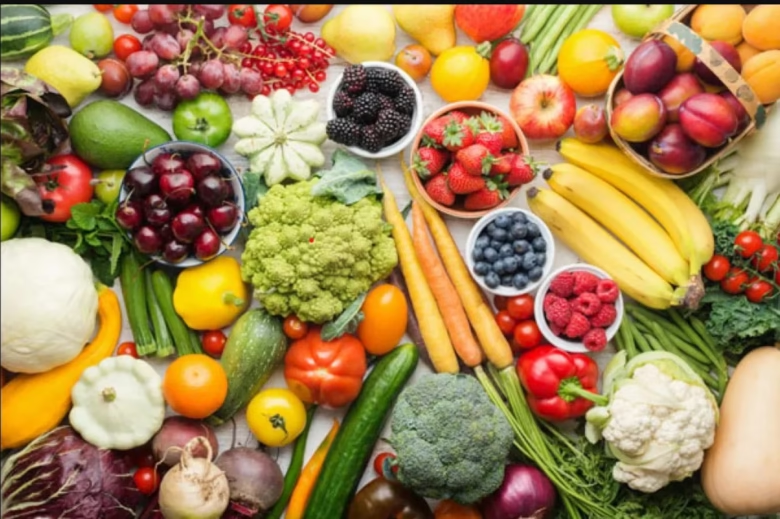One of the most natural ways to improve your health and well-being is to eat more fresh fruits and vegetables. Many supermarkets sell fruits and vegetables year-round, but choosing seasonal produce offers a unique flavor. Eating seasonally not only brings new flavors but also boosts the local economy, is good for your own health, and even protects the planet. Eating seasonally can significantly improve your health and lifestyle, especially in today’s fast-paced world, where convenience often trumps quality.
Why Eating Seasonally Is Important
Eating fruits and vegetables that are naturally harvested at specific times of the year is called seasonal eating. Summer brings an abundance of strawberries, while winter brings an abundance of root vegetables like carrots and sweet potatoes. Eating seasonally allows you to enjoy the freshest produce, which means better flavor and higher nutritional value.
On the other hand, out-of-season produce often travels thousands of miles before reaching your plate. This process reduces nutritional value, causes it to spoil faster, and increases your carbon footprint. By adapting your diet to the seasons, you ensure your body gets the nutrients it needs at the right time.
Seasonal produce has many benefits
One of the main advantages of eating seasonal fruits and vegetables is that they are healthier for you. Fruits and vegetables picked at their peak ripeness contain the highest concentrations of vitamins, minerals, and antioxidants. For example, tomatoes grown in the garden contain less vitamin C and lycopene than tomatoes ripened in the summer sun. Winter citrus fruits like oranges and grapefruit are rich in vitamin C, which strengthens your immune system during the colder months.
Eating seasonally ensures you get a wide range of nutrients year-round. As winter transitions to spring, spring vegetables offer a refreshing, cleansing sensation; summer berries are rich in antioxidants that protect against sun damage; autumn squash is rich in beta-carotene, which boosts immunity; and winter carrots provide warmth and fiber.
Faster and Fresher Taste
If you’ve ever enjoyed a ripe peach in the middle of summer, you know the importance of freshness. Seasonal fruits and vegetables taste better because they’re picked at the perfect time and often closer to home. Out-of-season fruits and vegetables, on the other hand, are often picked earlier and then grown in laboratories during transport, which can leave them bland and tasteless.
Fruits and vegetables grown during their natural growing season taste better. This makes your meal more satisfying and enjoyable. Eating seasonal vegetables helps you connect with food and enjoy its natural flavors, eliminating the need for added sugar, salt, or spices.
Supporting Local Communities and Farmers
Eating seasonal ingredients is also good for your community, which is another benefit. When you buy fresh, local ingredients, you directly support farmers in your area. This boosts the local economy and encourages environmentally friendly growing practices. Furthermore, local ingredients don’t have to be transported long distances, reducing pollution and energy consumption.
Visiting farmers markets is a great way to buy fresh fruits and vegetables and meet the growers. This relationship builds trust and ensures that the food you eat is free from excessive pharmaceuticals or fillers.
Eating seasonal produce is good for the environment
Eating seasonal produce is also better for the environment. Fruits and vegetables grown out of season often have to be kept warm in greenhouses, use artificial lighting, and be transported long distances. This uses more energy and emits more CO2.
You can help the planet by choosing seasonal ingredients. Seasonal produce can be grown organically with minimal human intervention, and buying local reduces the demand for produce from other countries. This is a small but important way to contribute to the environment in your daily life.
Affordable and Economical
Seasonal produce is generally less expensive than out-of-season produce. When fruits and vegetables are abundant, prices often drop. Strawberries, for example, are often much cheaper in the summer than when shipped in the winter.
Buying seasonal produce allows you to buy fresh, high-quality products without breaking the bank. It can also inspire you to try new products and vegetables.
Stay warm in winter and nourish your immune system
Traditional diets, such as Ayurveda and Traditional Chinese Medicine, have long been known for their ability to naturally meet the body’s needs with seasonal produce. Both emphasize the importance of a balanced diet that reflects the seasons and the environment.
How to Adapt Your Diet to the Seasons
Adapting your diet to the seasons isn’t difficult. Start by checking what’s available at your local farmers market or through your Community Supported Agriculture (CSA) program. Local produce in supermarkets is often labeled, making it easy to find seasonal ingredients.
Planning your meals around seasonal produce is fun and practical. You’ll eat a wider variety of foods, try new flavors, and enjoy healthier meals made with fresh ingredients. Over time, something as simple as switching from exotic fruits to local fruits can make a big difference.
Frequently Asked Questions
1. How do I know which fruits and vegetables are in season?
To find out what’s currently in season, you can consult online seasonal produce guides for your region or visit your local farmers market.
2. Are seasonal fruits and vegetables healthier?
Yes. Seasonal produce, picked at peak ripeness, contains more vitamins, minerals, and antioxidants than produce grown out of season and shipped long distances.
3. Does eating seasonal produce save you money?
Of course. Seasonal fruits and vegetables are often cheaper because they’re easier to find and don’t have to be imported or expensively grown.
4. Is eating seasonal produce good for the planet?
Yes. Choosing food based on the season reduces greenhouse farming, long-distance shipping, and excessive packaging, all of which lowers your carbon footprint.
5. Should I give up my favorite foods this time of year?
Absolutely not. You can still enjoy seasonal fruits and vegetables, but try to choose those products that are typically available at that time.
In short
Eating seasonal fruits and vegetables isn’t just a good habit; it’s a lifestyle that’s good for your body, your wallet, your neighbors, and the planet. Seasonal produce tastes better, is better for you, and meets your body’s natural needs year-round. You can eat healthier, save money, and help the environment by making small changes, like focusing on seasonal produce.
Eating seasonal produce not only nourishes your body but also reconnects you with nature and promotes a better, healthier lifestyle.




